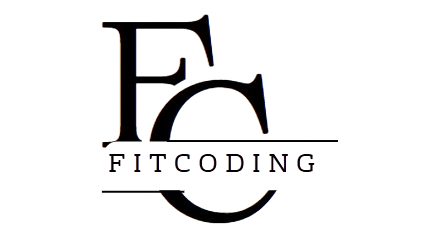In the rapidly evolving digital landscape platforms such as Hotleaks.tv have emerged, sparking both curiosity and concern. These platforms, often controversial, thrive in the grey areas of internet regulation, bringing to light sensitive, sometimes unauthorized content. This article offers a comprehensive look at Hotleaks.tv—its function, implications, and the broader discussions it ignites about digital ethics, legality, and user behavior.
What is Hotleaks.tv?
Hotleaks.tv is a digital platform known for hosting and sharing leaked media content. This includes photos, videos, and documents that may have been extracted without the original creator’s consent. Such platforms are often frequented by users seeking behind-the-scenes or exclusive content that isn’t available through official channels.
While it may attract users due to curiosity or interest in exclusive material, Hotleaks.tv operates in an ethically and legally ambiguous zone. Questions about consent, privacy, and intellectual property are central to understanding the dynamics of this website.
The Rise of Leak Platforms in the Digital Era
Over the past decade, the internet has witnessed the rise of platforms that cater to leaked content. This trend is largely fueled by:
- Increased use of cloud storage services
- Data breaches and weak cybersecurity measures
- The demand for exclusive or scandalous content
Hotleaks.tv joins a long list of websites that capitalize on these vulnerabilities. The growing number of digital leaks and their rapid dissemination raise pressing questions about digital safety and the ethics of content consumption.
User Privacy and Ethical Concerns
A major concern surrounding platforms like Hotleaks.tv is the violation of user privacy. Often, individuals featured in leaked content have not given consent for their media to be publicly shared. This creates significant psychological, reputational, and legal consequences for those affected.
Ethical Dilemmas
- Should viewers engage with such platforms?
- Is it ethical to share or download leaked content?
- Where should the line be drawn between public interest and personal privacy?
These questions are central to the ongoing debate about leak culture and the responsibilities of digital citizens.
Legal Implications and Intellectual Property
Legally, websites like Hotleaks.tv often operate in murky waters. In many jurisdictions, distributing non-consensual content, especially of a sensitive nature, can result in criminal charges. There are also ongoing global efforts to better enforce data protection and copyright laws.
Key Legal Issues
- Copyright Infringement: Unauthorized sharing of media owned by another party
- Violation of Privacy Laws: Especially relevant in regions with strong data protection laws like GDPR in Europe
- Revenge Porn Legislation: In some cases, content shared falls under this category
These legal frameworks are increasingly being leveraged to take down such websites or prosecute those involved.
Impact on Content Creators and Online Communities
Content creators, especially those who monetize through platforms like OnlyFans or Patreon, are among the most affected by leaks. When their work is distributed without consent, it not only causes financial loss but also undermines the trust built with paying subscribers.
Online communities that thrive on content sharing often become complicit, either knowingly or unknowingly, in amplifying the reach of leaked content. This creates a toxic digital ecosystem that prioritizes virality over ethics.
Technology Behind Hotleaks.tv
The infrastructure of platforms like Hotleaks.tv typically includes anonymous hosting, offshore servers, and encrypted data sharing. These technological choices are often deliberate, helping operators evade legal scrutiny and maintain user anonymity.
Common Tech Features
- Anonymous uploads
- Hidden IP tracking
- Mirror sites and proxy links
- Blockchain-based verification for users (in some cases)
Such features make these platforms resilient but also harder to regulate or dismantle.
Content Monetization and Viewer Behavior
Some leak platforms adopt monetization models that mirror legitimate content services. They may offer premium memberships, ad revenues, or donations. This economic incentive often encourages continuous operation and expansion.
Behavioral Patterns
- Users seek content that is otherwise restricted or paywalled
- High engagement during controversial leaks
- Social media often plays a role in amplifying leaks
Understanding why users engage with Hotleaks.tv helps in developing targeted interventions and public awareness campaigns.
How to Stay Safe Online
In an era where leaks are increasingly common, protecting one’s digital identity is crucial. Here are some tips:
- Use strong, unique passwords
- Enable two-factor authentication (2FA)
- Regularly audit cloud storage and permissions
- Avoid uploading sensitive content to unsecured platforms
Practicing digital hygiene can drastically reduce the risk of your content being leaked.
Real-Life Cases and Platform Reactions
Numerous celebrities and influencers have fallen victim to leaks. While some pursue legal action, others attempt damage control through public relations.
In response, platforms like Hotleaks.tv may:
- Remove content upon DMCA requests
- Offer takedown forms (though these are often ineffective)
- Operate under new domain names to evade shutdowns
These patterns show a cat-and-mouse game between enforcement and digital evasion.
Comparison Table of Content Leak Platforms
| Platform | Type of Content | Legal Status | Monetization Model | Known Reactions to Takedown |
| Hotleaks.tv | Leaked personal media | Ambiguous | Ads, Donations | Limited compliance |
| CelebJihad | Celebrity content | Controversial | Premium access | Occasional removal |
| TheFappeningBlog | Celebrity photos | Frequently reported | Ad revenue | Constant domain shifting |
| AnonFiles | General file sharing | Legal (gray area) | None (free service) | Takedown upon request |
| LeakHive | Subscription content | Often illegal | Subscription, Ads | Ignored or slow to respond |
What the Future Holds for Hotleaks.tv and Similar Sites
With increased attention on data privacy and legal frameworks tightening worldwide, the future of platforms like Hotleaks.tv is uncertain. Government agencies, tech companies, and advocacy groups are pushing for:
- Stricter enforcement of digital privacy laws
- Improved AI detection of unauthorized content
- Global cooperation for cybercrime enforcement
While it’s unlikely that all such platforms will disappear, their operational ease and reach are likely to face significant hurdles.
Conclusion
Hotleaks.tv represents a growing digital phenomenon where curiosity, ethics, and legality collide. While it may serve a specific user base seeking exclusive content, it raises serious questions about privacy, consent, and the responsibilities of internet users. Understanding the implications of such platforms empowers individuals to make informed decisions and fosters a more ethical digital ecosystem.
FAQs
What kind of content is on Hotleaks.tv?
Hotleaks.tv generally hosts leaked or unauthorized media content, often of a personal or private nature.
Is using Hotleaks.tv legal?
While merely visiting the site may not be illegal, downloading or sharing content from it can violate copyright and privacy laws, depending on your jurisdiction.
Can someone request content removal from Hotleaks.tv?
Some leak platforms provide takedown forms or accept DMCA requests, though their effectiveness is limited and inconsistent.
How can I protect my content from being leaked?
Use strong security practices, limit content sharing, and regularly audit your online presence and cloud accounts.
Are there alternatives to Hotleaks.tv for exclusive content?
Yes. Platforms like Patreon, OnlyFans, and Ko-fi allow creators to share exclusive content securely with paying subscribers.











